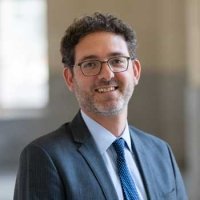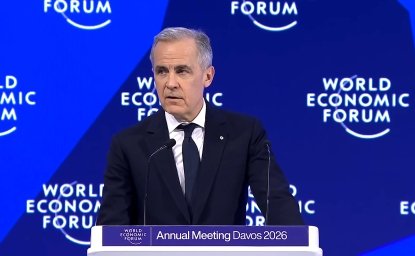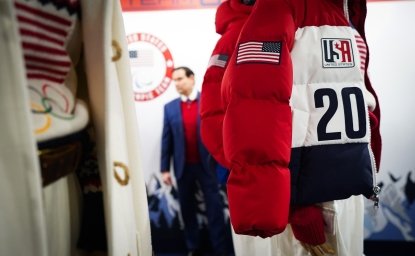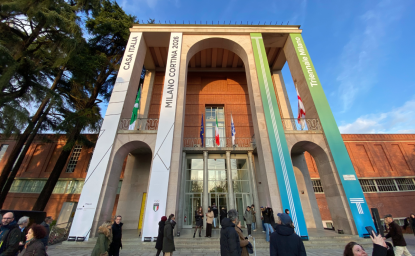Alexander Bick is a Wilson Center Fellow affiliated with the Middle East Program and the Kennan Institute. We recently spoke to him about his research on his project "Quagmire: Russia and the United States in Syria."
Q: Describe your background and what brought you to the Wilson Center.
In many cases, a single experience can have an outsized impact on the career a person chooses to pursue. In my case, that experience was living in Liberia, West Africa, at the moment that country descended into what would become a fifteen-year civil war. I was too young to fully grasp the horror that was unfolding around me, but old enough to track the advance of Charles Taylor's rebel army from BBC reports on the radio and to take away a powerful sense of the destruction wrought by violent conflict. My professional life has been devoted to trying to understand the nature of war and the deeper confluence of forces that contribute to political stability.
My work has straddled the worlds of academia and international affairs. After studying political science in college, I worked at The Carter Center, supporting former U.S. President Jimmy Carter's efforts to resolve conflict and promote democracy, from Liberia and Sierra Leone to Venezuela, Sudan, and later, Libya. I studied in London and then pursued a PhD in history, doing archival research in the Netherlands that turned into a book project on one of the first European joint stock companies and the broader relationship between war, state formation, and colonialism.
In 2012, I joined the Obama administration, where I served on the Policy Planning Staff at the State Department and then at the National Security Council. I worked on a range of issues, but the majority of my time was devoted to Syria. This included helping to devise and coordinate the U.S. strategy to defeat the Islamic State and engaging Russia to try to end the war. Being a fellow at the Wilson Center offers the rare opportunity to reflect more deeply on this experience and its potential lessons for U.S. foreign policy, in a non-partisan environment where policy-relevant scholarship is valued and promoted.
Q: What project are you working on at the Center?
My project examines the relationship between the United States and Russia in Syria over the period 2011-2016. In contrast to the prevailing public discourse on the war, which has been framed largely in terms set by the 1990s debate over humanitarian intervention, my project explores Syria as a case study in renewed great power competition. By reconstructing U.S. decision-making from this perspective, I hope to identify where and why certain assumptions about Russia proved wrong and to draw out lessons for how the United States weighs the balance between cooperation and competition with Russia in other contexts. This is particularly important today, given Russia's global resurgence and increasing profile in conflicts such as Libya or Venezuela.
Q: How did you become interested in your current research topic?
There are many valid critiques of U.S. policy in Syria. Nevertheless, much of the public discussion has been relatively shallow, dismissing constraints or failing to evaluate Syria within the larger context of U.S. foreign policy priorities. Part of my motivation for the project is to offer a detailed, sober assessment of Syria policy in the Obama administration, including how problems were framed, what options were (or were not) considered, and where faulty assumptions proved most damaging to U.S. interests. Russia is central to this story because of its decisive role in the conflict, the multiple dimensions of U.S.-Russian interaction, and the extent to which Moscow capitalized on its military intervention in Syria to enhance its geopolitical influence – an outcome that was not initially foreseen by many U.S. policymakers. We need a clearer picture of the past if we are to learn its lessons.
Q: Why do you believe that your research matters to a wider audience?
Big problems can arise from unexpected places. Despite the Obama administration's effort to avoid entangling the United States in another war in the Middle East, Syria has arguably emerged as the defining conflict of the new century. Like the Spanish Civil War, it has become a theater for external actors to test new military technologies and take the measure of their own strength, as well as a magnet for foreign fighters. The war has killed half a million people, undermined international norms and institutions, spawned virulent new strains of extremism, created an enduring refugee crisis, and helped propel Russia back onto the international stage. We are still learning what the long-term consequences of all these developments will be. But there is no doubt they are already profound.
Q: What is the most challenging aspect of your research?
The greatest challenge for me is to deepen my understanding of Russia's perspective and decision-making. Recent research has identified the main factors that led Russia to intervene militarily in Syria in September 2015 and placed this decision within a larger effort, dating to early in Vladimir Putin's first presidency, to restore Russia's influence in the Middle East. But there is still much that we do not know. This makes the resources and expertise of both the Middle East program and the Kennan Institute invaluable to my project.
Q: What do you hope the impact of your research will be?
I hope that my work will help current and future policymakers more effectively address the next crisis.
Author

Director for Strategic Planning, National Security Council
Explore More
Browse Insights & Analysis
The Middle Power Play: Why Canada and Britain are Hedging on China


